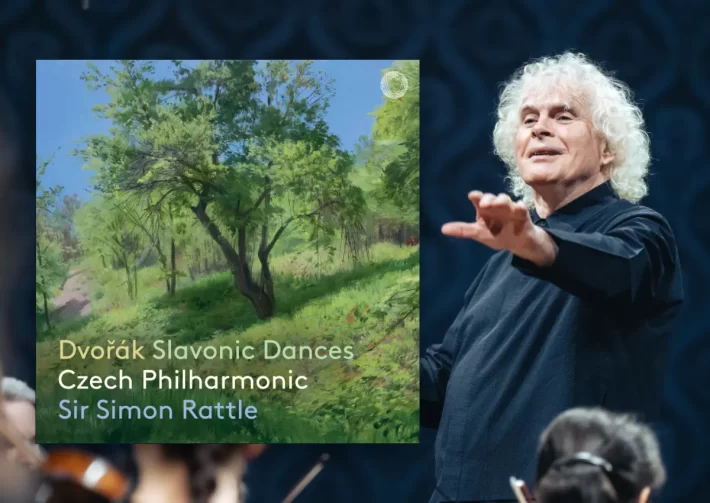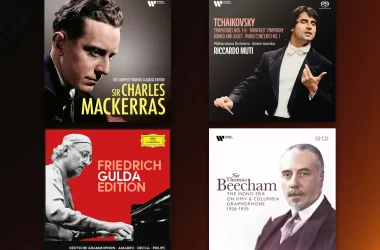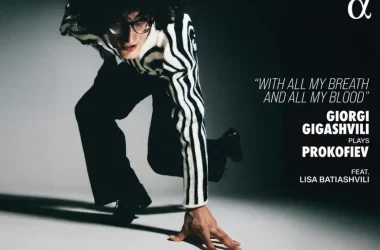This is Pentatone’s third all Dvořák album featuring the Czech Philharmonic. The first, released in September 2024, included the last three symphonies and overtures (conducted by Music Director Semyon Bychkov); a few months later came the Legends and Rhapsodies led by Tomáš Netopil. This latest release is led by Sir Simon Rattle, the orchestra’s Principal Guest Conductor.
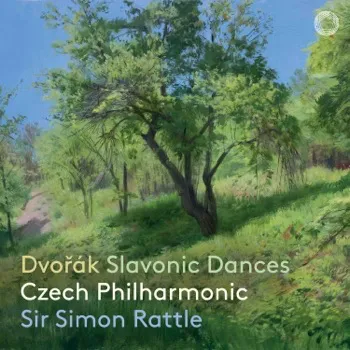
Reviewing the first release, I mentioned Bychov’s interpretational reticence, which at times led to readings in which the orchestra just played the music without additional insights from the podium. I have the opposite argument about Rattle: in recent reviews of Rattle recordings with both the London Symphony and Bavarian Radio Symphony Orchestras, I have argued that his micro-management of a performance, while revealing inner detail and interesting secondary material, muddies the music’s emotional journey. But when reviewing Pentatone’s ‘Folk Song’ album, I noted a clear rapport between Rattle and this orchestra, a quality even more apparent in this new release. In fact, the combination of Rattle’s focus on the music’s inner workings, combined with this orchestra’s dazzling colors and supple rhythmic freedom, makes this one of the best readings of the dances I have ever heard.
Tempos throughout are ideal: faster movements are never frantic (as they are at times in Bavarian RSO under Kubelik on DG) and slow movements always have an underlying forward momentum, a quality often lacking in Maazel’s Berlin Philharmonic recording on Warner Classics. Rattle coaxes a wonderful lyricism from the orchestra, yet articulation is crystal clear, and his generous rubato that never feels mannered or overdone. The orchestra has never sounded better, and though few may feel the sound can be too resonant, I found Pentatone’s engineering for this ensemble mostly excellent. No one knows this repertoire better, and that communal knowledge surely tells in the unanimity of playing, the shifting of colors and moods. And while they have surely played this music hundreds of times, they sound enthralled, as if they are playing it for the very first time.
The playing has tremendous power and joy de vivre, but Rattle seems especially attuned to the more delicate, introverted nature of the slower dances. Personally, I have always favored the first set, but for this reason I was repeatedly drawn to the second set. Under Rattle, the slower dances have a more circumspect poignancy, revealing a more complicated web of emotional territory. Dvořák’s orchestration is even finer, more subtle, percussion used more sparingly. One of many highlights is the second set’s fourth (Dumka), its melancholic mood only intensified by the yearning in the central section.
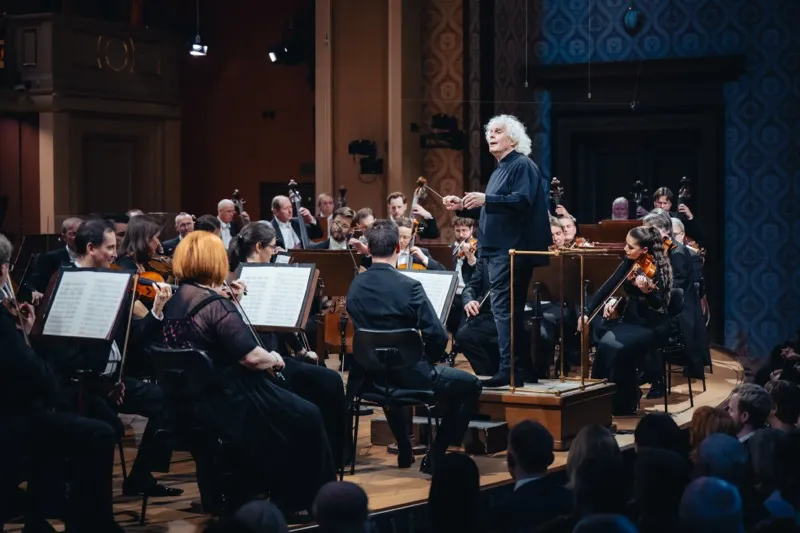
Sir Simon Rattle and the Czech Philharmonic (©️ Petr Chodura)
This recording was made over six days (three for each set); in an age of capturing live recordings, this kind of studio time seems like a luxury. And it pays off: everything sounds immaculate, inner details clearly revealed, as is Dvořák’s masterful use of color and weight in his orchestration. Timpani and bass drum have startling clarity, allowing one to hear the importance of the timpani in softer passages.
The orchestra has recorded the work at least ten separate times. Bělohlávek’s Decca recording also features exquisite playing and an excellent Decca recording, which nevertheless does not match what Pentatone achieves here. Yet the performances have less character and exuberance compared to this new set. Mackerras, with the same orchestra, generates more character and energy, but Supraphon’s recording, set at a distance, can thicken in louder tutti passages.
Kubelik’s recording with the Bavarian Radio Symphony has sharper attacks, the sound is brighter and the faster tempos sometimes almost frantic (although undeniably exciting). Revisiting Harnoncourt’s reading with the Chamber Orchestra of Europe (Warner Classics) I now found it a bit heavy-handed at times. The excellence of the playing, as well as the character and naturalness of the playing, put Rattle in the company of Szell’s famous Cleveland performance on Sony.
Recommended Comparisons
Kubelik | Szell | Harnoncourt | Neumann | Bělohlávek

Album Details |
|
|---|---|
| Album name | Dvořák – Slavonic Dances |
| Label | Pentatone |
| Catalogue No. | 5187414 |
| Artists | Czech Philharmonic, Sir Simon Rattle |

